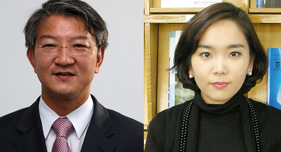research
A team of scientists led by Prof. Sang-Yup Lee of the Department of Biological Sciences at KAIST have succeeded in producing the polymers used for everyday plastics through bioengineering, rather than through the use of fossil fuel based chemicals, the university authorities said on Tuesday (Nov. 24).
This groundbreaking research, which may now allow for the production of environmentally conscious plastics, has been published in two papers in the journal Biotechnology and Bioengineering.
Polymers are molecules found in everyday life in the form of plastics and rubbers. The team consisted of scientists from KAIST and Korean chemical company LG Chem focused their research on polylactic acid (PLA), a bio-based polymer which holds the key to producing plastics through natural and renewable resources.
"The polyesters and other polymers we use everyday are mostly derived from fossil oils made through the refinery or chemical process," said Lee. "The idea of producing polymers from renewable biomass has attracted much attention due to the increasing concerns of environmental problems and the limited nature of fossil resources. PLA is considered a good alternative to petroleum based plastics as it is both biodegradable and has a low toxicity to humans."
Until now PLA has been produced in a two-step fermentation and chemical process of polymerization, which is both complex and expensive. Now, through the use of a metabolically engineered strain of E.coli, the team has developed a one-stage process which produces polylactic acid and its copolymers through direct fermentation. This makes the renewable production of PLA and lactate-containing copolymers cheaper and more commercially viable.
"By developing a strategy which combines metabolic engineering and enzyme engineering, we"ve developed an efficient bio-based one-step production process for PLA and its copolymers," said Lee. "This means that a developed E. coli strain is now capable of efficiently producing unnatural polymers, through a one-step fermentation process,"
This combined approach of systems-level metabolic engineering and enzyme engineering now allows for the production of polymer and polyester based products through direct microbial fermentation of renewable resources.
"Global warming and other environmental problems are urging us to develop sustainable processes based on renewable resources," concluded Lee. "This new strategy should be generally useful for developing other engineered organisms capable of producing various unnatural polymers by direct fermentation from renewable resources".

-
people Professor Ki-Jun Jeong Wins the 2015 Dam Yeun Academic Award
The 11th Dam Yeun Academic Award presented by the Korean Society for Biotechnology and Bioengineering (KSBB) to a biologist under 45 years old went to Professor Ki-Jun Jeong of the Chemical and Biomolecular Engineering Department at KAIST. The award ceremony took place on October 13, 2015, at the annual conference of KSBB held at Songdo Convensia in Incheon City. Each year KSBB announces the recipient of the award based on the publications by researchers in the last five years at peer-reviewed
2015-10-19 -
people Professor Ki Jun Jeong Selected As the Winner of the 'Young Asian Biotechnologist Prize'
Professor Ki Jun Jeong from the Department of Chemical and Biomolecular Engineering, KAIST, has been selected as the winner of this year’s Young Asian Biotechnologist Prize. Professor Jeong was invited to the 66th Japan Biotechnology and Bioengineering Society Conference scheduled in September 9th-11th, 2014, in Sapporo, Japan, where his award ceremony will be held. The award is presented to Professor Jeong in recognition of his o
2014-06-14 -
research Prof. Lee"s Team Pioneers Biotechnological Production of Chemical Using Renewable Materials
A research team led by Prof. Sang-Yup Lee of the Bio and Brain Engineering Department at KAIST has succeeded in engineering the bacterium E. coli to produce the industrial chemical putrescine, university authorities said on Monday (Aug. 31). Putrescine, a four carbon chain diamine, is an important platform chemical with a wide range of applications for the pharmaceutical, agrochemical and chemical industries. It is currently used to synthesize nylon-4,6, a widely used engineering plastic
2009-09-01